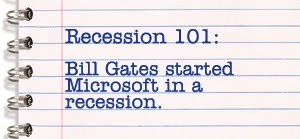Don't Let a Reason Become an Excuse
The other day my colleague Jeff said something very simple that really resonated with me – “We can’t let a reason become an excuse.” He said it in relation to how our business at The Members Group continues to work on improving our processes and how other projects often get in the way. In some cases, we have let a reason (time constraints) become an excuse (I can’t work on that project because I have so much to do). I have spent a great deal of time thinking about the differences between a reason and when it becomes an excuse, and how that influences our own ability to act.
There are always reasons why things happen that derail us from our plan for today, or our vision for a product or business. Resource constraints. Time constraints. Changing priorities. Competitors that change their tactics in the market. Our bosses, co-workers, spouse, children all make demands that can throw us off our game. They are all reasons – valid ones at that.
But when they become excuses, we lose something else – our ability to feel as if we control our own destiny. I would have (fill in the blank – served that customer better, gotten that project done on time, made the sale) if it weren’t for (fill in again – my boss, not having enough resources, competitor X giving the product away). That simple statement moves us from what may very well be a valid reason that we need to address into a demoralizing excuse that gives us the justification to accept the bad hand that we have been dealt. Rather than stubbornly moving past the obstacle we give into the circumstances. It moves us from being a leader conquering circumstances to being a victim to the situation.
So why do we turn reasons into excuses?
There are some reasons that we really feel powerless to control. The overall economy has become the latest and greatest excuse. “When the economy turns around…” is my favorite excuse. As if one day, Ben Bernanke will stand up and say, “The good times are back and we now return you to your regular programming.” We all know that this is unlikely to happen, certainly not in those terms (maybe we’ll get, “the core rate of inflation is rising slightly causing the jobless claims to decrease at a corresponding rate, leading the Federal Open Markets Committee to begin reducing the quantitative easing in the economy.” Who knows…). But more importantly, if we let the “economy” become our excuse, we are helpless to move ourselves and our organizations forward until some external party tells us that it has improved.
I drove by a billboard awhile back that said, “Microsoft was started in a recession.” An odd billboard for sure, but a reminder that some of the most successful ventures were started in not-so-good times. In fact many Fortune 500 companies today were started in what could be considered a recession. So why didn’t Bill Gates just say, “You know what, maybe I’ll just finish up here at Harvard and roll out that new operating system as soon as interest rates come back down and people are more interested in investing capital in personal computers?” After all, the early 1980s were a clear recession accompanied by high unemployment and high interest rates. He had a reasonable path to graduating at a premier university. The recessionary economy was a valid reason for delay, no doubt. But his vision was to revolutionize the world and ride the wave of this new-fangled personal computer. The economy was secondary to changing the world and the time was right then. What the external environment looked like was less important than the vision of a new way of living.
You could easily be saying, “Yeah, but I’m a project manager eight layers down from the CEO in a business of 1,000 employees. I don’t have that type of control. I come to work every day and people tell me what I am going to do next.” So maybe you’re right about your environment, but is that a reason or an excuse? (Maybe more importantly, should you spend at least 1/3 of your life at a place where you don't feel like you have any control, but we’ll save that for another day).
The facts are the facts, how we choose to deal with them is our decision. I work with another guy who has been battling cancer for more than a year. He has a family, is dealing with the normal cancer treatments and had been trying to work as well. He had a reason to walk around with a chip on his shoulder. However, in interactions with him, you’d never know from his outward disposition that he was the one with cancer. In various meetings, others would come in with gloom and doom, complaining about various factors (resources, time constraints, etc.). Yet, he always seems positive. I know he is probably not always like this – cancer is a devastating disease that can eat away at the soul as well as the body. But he has intentionally chosen not to let this reason (cancer) become an excuse to not live life in a positive way, at least as a sign to the rest of the world. He has become an inspiration to me – after all if he can remain positive through all of this, what is my worst problem? I mean, really.
I guess the moral for me is that we all have the challenges of our personal and professional lives. Some are harder than others – they are real reasons for things that are happening. The economy isn’t terribly great right now; resource and time constraints do cause us to have to modify our plans for completing projects. When we let the circumstances take control and move into victimhood then we have let those reasons become excuses to not take action. To truly be successful and adapt to the changing world, what I call here a Plan B mindset, we can’t let the external environment control our internal motivation. It’s not always easy, but we have to understand the reasons, react accordingly and remain consistent to our intention. Keep adapting, keep changing the game and know that there are reasons why things happen – if we can treat them only as reasons and not as excuses, we put ourselves in a much better position to accomplish what we set out to do.



Great post, Jeff!
ReplyDeleteThe credit union industry is standing at a pivotal point of recreating itself. The opportunity is to focus on our core values for differentiation, as the comfortable 3% margins are over. We are heading towards perfect pricing in a mature industry. We must become more efficient, empowered and innovative to capture the hearts and minds of our members. They are expecting more from their trusted partner. We cannot continue to be fearful and sit on our hands and believe the bottom line will come back as it always has in our lifetime. This is not a cycle but a paradigm shift that will purge industry players that cannot adapt and change. I have an extremely positive outlook the credit union industry will make this transition and succeed as we always have. However, just as in any industry there will be credit unions that are frozen by fear. Jeff's post eloquently states we have to break out of the paralysis and leverage this opportunity, just as we did with the introduction of checking,IRAs, internet, etc.
ReplyDeleteI agree hardship creates a platform for transformational renewal. Greater efficiencies, collaboration and different business models are required to leverage our tax exemption into added value for our membership. The world is moving at a dazzling pace and our leadership must lead, by responding to the new business model of how our members want to conduct their financial lives.
Change can be scary but invigorating once you let go. The Great Recession is the perfect time for credit unions to thrive once we let go and believe in ourselves and leadership.
Excellent post Jeff and congratulations on starting your new blog. I look forward to reading all about Plan B Philosophy.
ReplyDelete@Dwayne: I think now is the time for credit unions. The environment we are in is a catalyst for change and we need to seize upon it. Keep the faith and keep moving forward.
ReplyDeleteThat's what I said:)
ReplyDelete